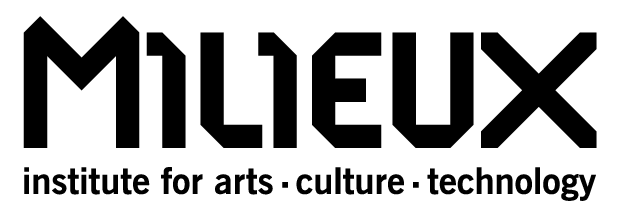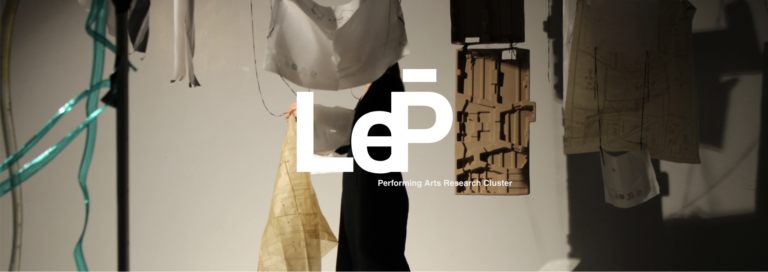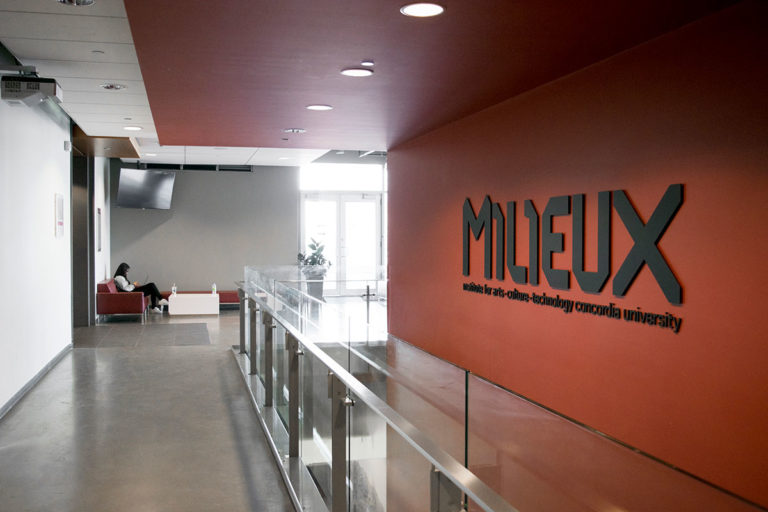The five labs participating in the SSHRC-funded partnership development project, Infrastructures of Ethnography, gathered in Montreal the last weekend of May 2023. During this first in-person encounter, they shared the results of their first year of research and looked for ways to “co-labor” (de la Cadena 2015) in the coming years.
Highlights:
Different approaches to collaboration: Each lab approached the research object with its distinct way of working. The students at the Concordia Ethnography Lab engaged with a quarry using composite ethnography, the methodology the lab has been developing to approach collaboration around a single object. In The Ethnography Studio (University of Southern California) students came up with the concept of porosities and used it to approach the different PhD students and postdocs field sites and potential projects. The Ethnography Lab (University of Toronto) students found themselves distributed and thinking with the notion of play in at their field sites around the world when approaching their project. A project that allowed them to build connections as they developed an ethnographic game that travels across geographies. Centre for Experimental Ethnography (CEE) / Collective for Advancing Multimodal Research Arts (CAMRA) (University of Pennsylvania) students decided to put together a syllabus/curriculum that would work as the theoretical scaffolding for the project to approach multi-modality. And the Collaborative + Experimental Ethnography lab (CE2 Lab) (University of British Columbia, Okanagan) students and their supervisor (Fiona McDonald) gathered weekly to engage in research-creation and sensory research; in this case, they translated into watercolours the sensory knowledges that signs in the Kelowna generated in them. These five projects could not be more different from each other, and together map out a diversity of experiments in collaborative ethnography which the partnership aims to better promote in the years ahead.
The joy of making things happen: Building on their work for Experimenting with Ethnography (Ballestero and Winthereik 2021), Andrea Ballestero (USC) and Katie Ulrich (USC/Rice) offered the metaphor of a live-cooking show as they put together a protocol for collaboration in real time. They went through the process on how porosities came to be, and together, we figured out the steps for a protocol around “Tentative Concepts.” While analysis was central to the experience, they showcased how admin and other usually unloved tasks are fundamental to collaboration (among students and universities alike). Admin tasks, they showed, not only make things happen but are also a feminist practice of care. In the coming academic year, each lab will be emulating this experiment to try to bring our varied approaches to the surface.
Rethinking “data ideologies”: Drawing from the work of Kim and Mike Fortun and their students (see Poirier et al. 2020) as well as his experience in scientific publishing, Marcel LaFlamme (PLOS) teamed up with Joshua Barker (UofT) to get us reflecting on our data ideologies as ethnographers. While we realized that we all approached –and defined– data differently, this session helped us to see what is possible when we let go of the “all or nothingness” that has characterized anthropologists’ approach to data sharing and think more nimbly about how to manage ethnographic data in a controlled but mutually generative way.
Becomings: we took advantage of our time together to think about the project’s future, and what we wanted to create with it. The thing that got us most excited is the infrastructural promise of building new kinds of spaces within–and beside–the discipline that foster more creative, and imaginative forms of ethnography. We worked a lot on our internal dynamics, around labour, communication, data and protocols to better potentiate this promise.
What is evident is that we have created a community of like-minded researchers who hope to foster more open spaces for ethnographic thinking. In the year ahead, we will make the synergies and productive contrasts clearer with the goal of growing our community further. Next meeting will be in Toronto around the joint Canadian Anthropology Society/American Anthropological Association meetings in the fall; watch out for our experimental roundtable, skills workshops, and collective protocol-building!
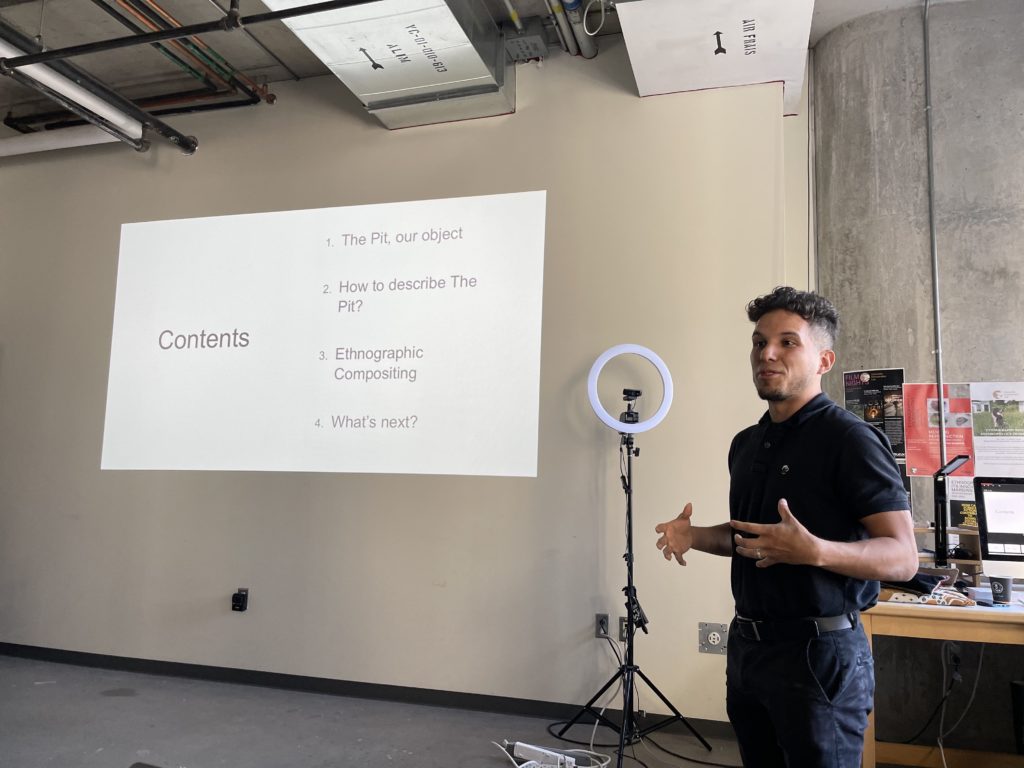
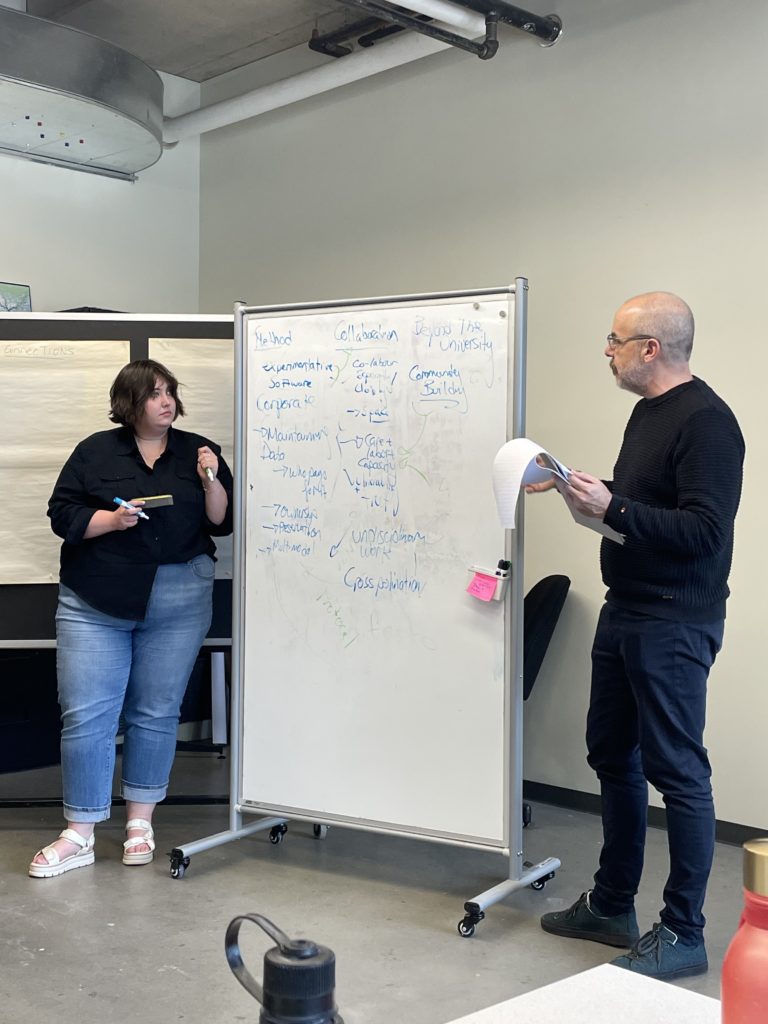
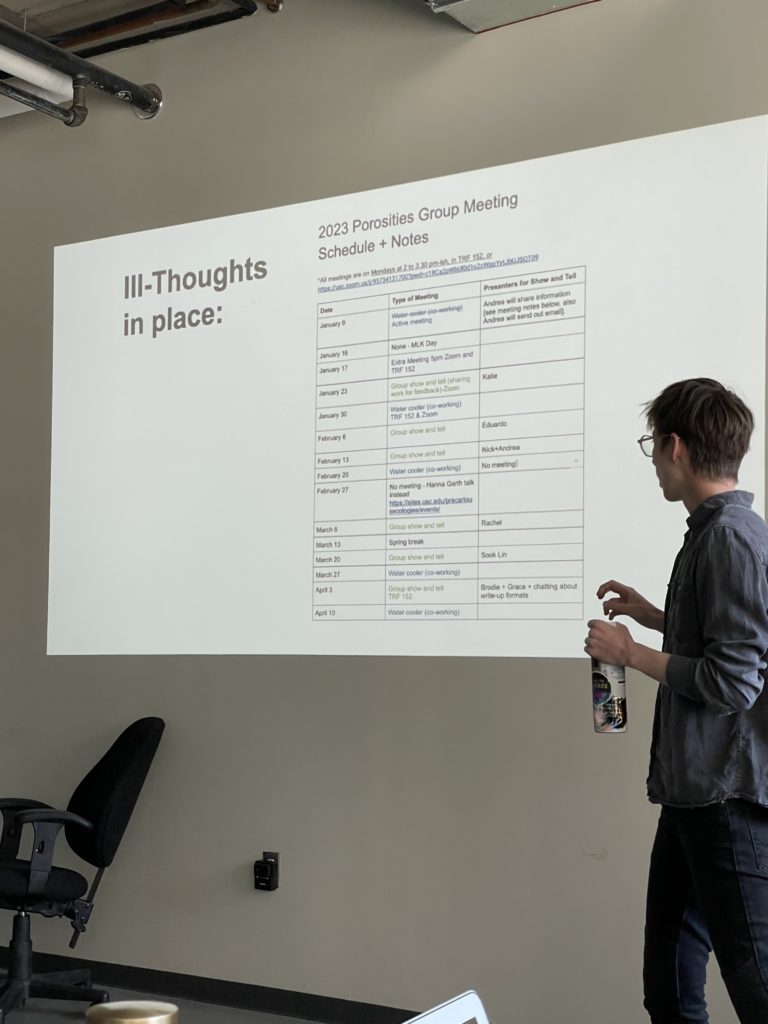
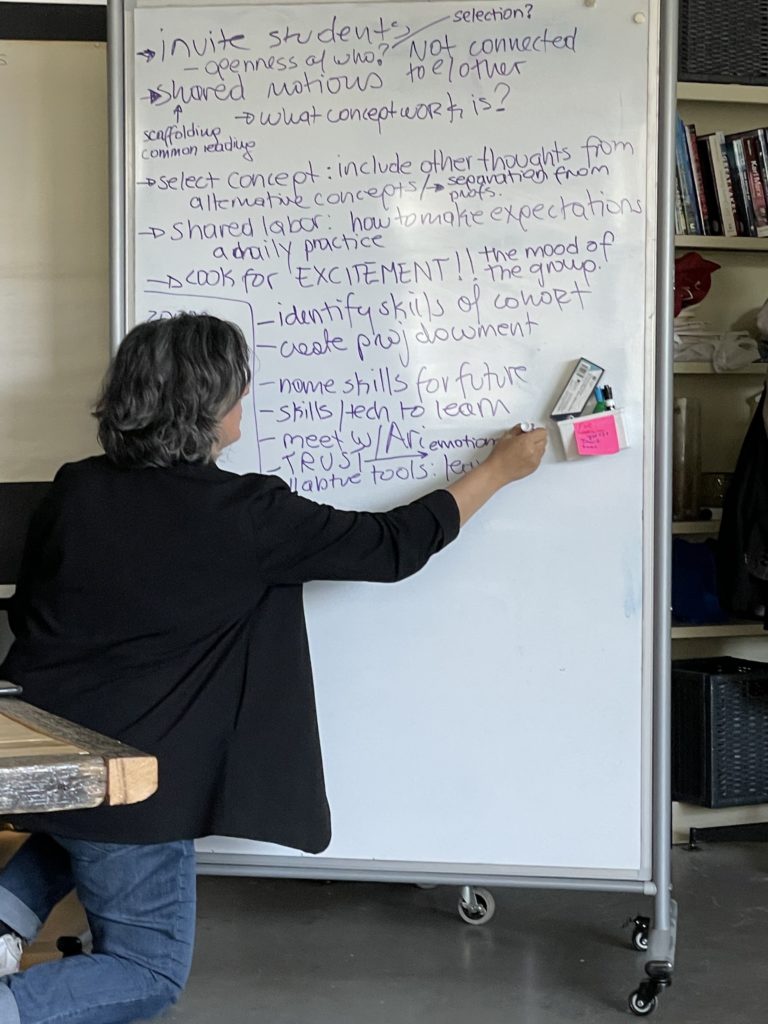
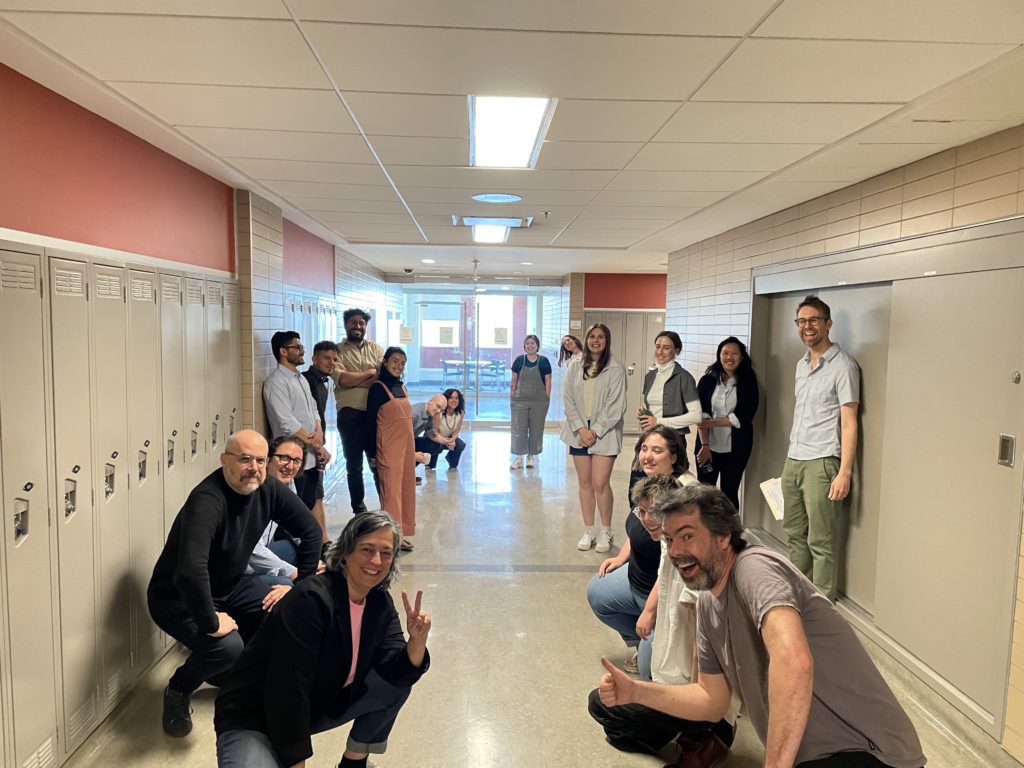
By Melina Campos Ortiz, PhD Student in Social and Cultural Analysis
Learn more about the Infrastructures of Ethnography project in our latest Annual Report here.
References cited:
Ballestero, Andrea, and Brit Ross Winthereik, eds. 2021. Experimenting with Ethnography : A Companion to Analysis. Durham and London: Duke University Press.
Cadena, Marisol de la. 2015. Earth Beings: Ecologies of Practice across Andean Worlds. London and Durham: Duke University Press.
Poirier, Lindsay, Kim Fortun, Brandon Costelloe-Kuehn, and Mike Fortun. 2020. “Metadata, Digital Infrastructure, and the Data Ideologies of Cultural Anthropology.” In Anthropological Data in the Digital Age: New Possibilities – New Challenges, edited by Jerome W. Crowder, Mike Fortun, Rachel Besara, and Lindsay Poirier, 209–37.
